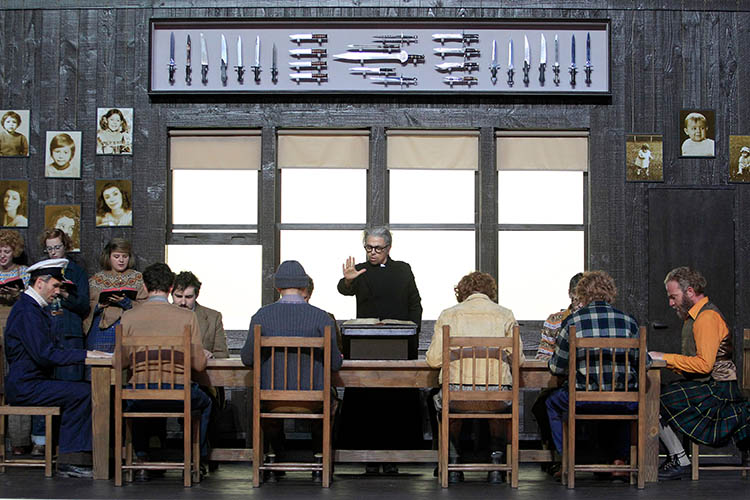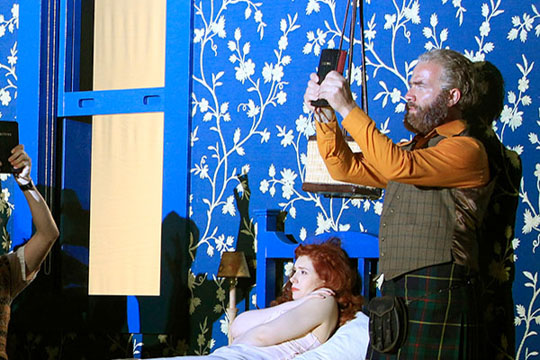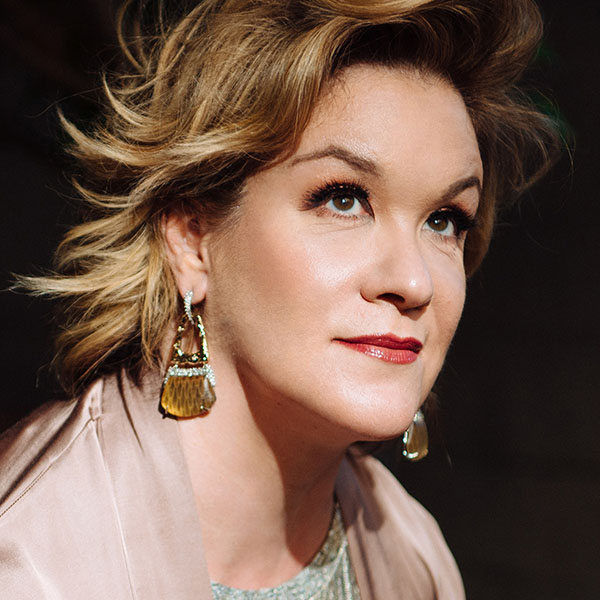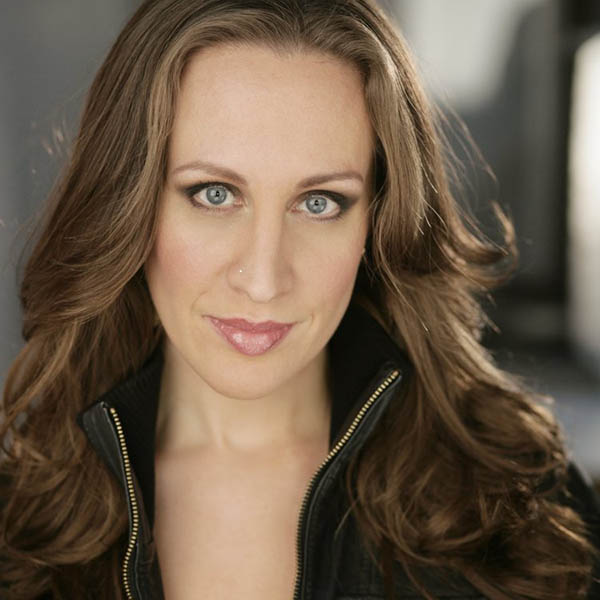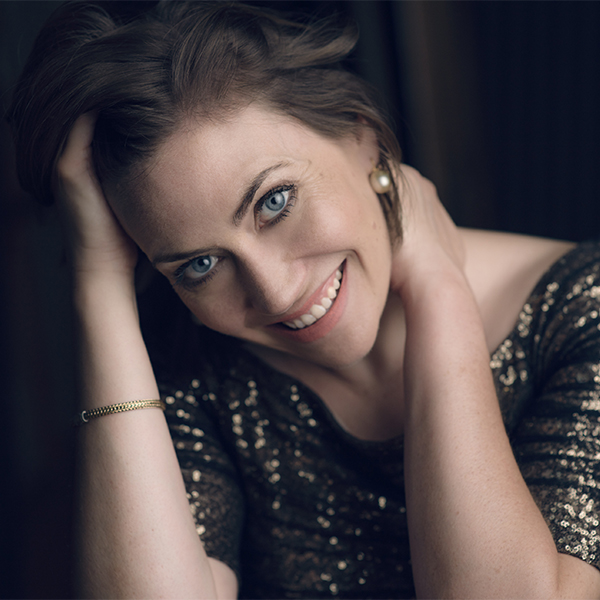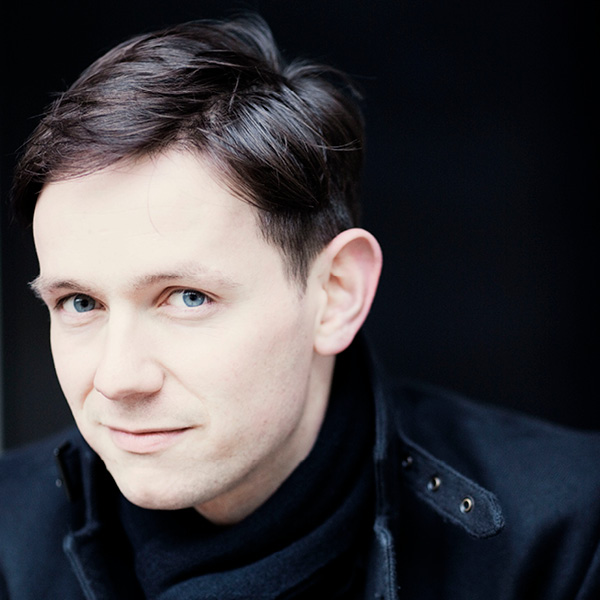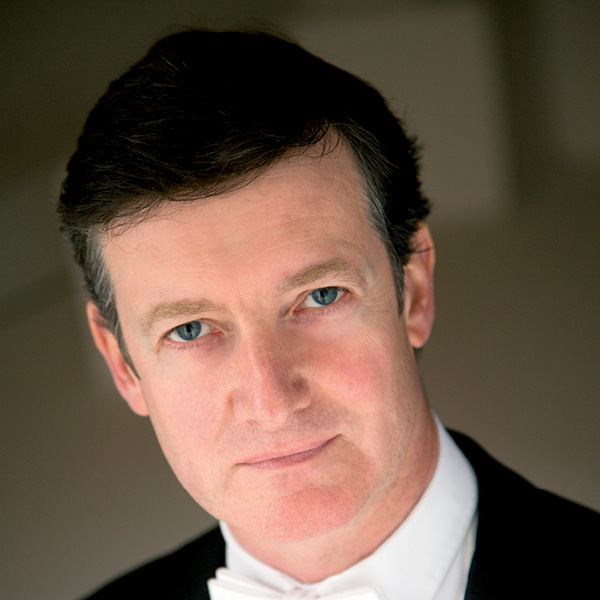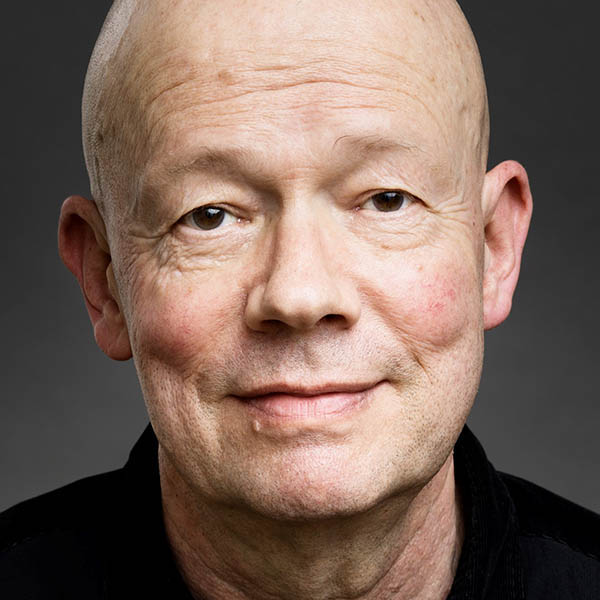March 02. 2019 - June 30. 2019
Upcoming Dates
March 02. 2019 - June 30. 2019
Lyric Premiere & New Coproduction Ariodante
Villainous Polinesso lusts after Ginevra, but she loves noble Ariodante, who loves her in return.
What happens when someone your town trusts is actually the villain? For Ginevra and her beloved Ariodante, things may never be the same. Lyric is proud to produce the company premiere of this important Baroque masterpiece from the composer of Messiah which marries stunning vocalism and riveting drama.
Making its U.S. debut, this critically-acclaimed Lyric coproduction from Director Richard Jones updates the story to 1970s Scotland, where a close-knit, fundamentalist community provides the thought-provoking backdrop. The Toronto Globe and Mail says, "The decisions Jones has made to update and deepen the resonances of the opera work beautifully both to preserve the integrity of the original and add to it touches and textures that only a modern audience can appreciate…If you needed one example to demonstrate why modern staging and perfectly realized music from the past need each other, this was it."
Don't miss this highly anticipated Lyric premiere that critics are calling "dramatically complex... deliciously interesting" – (The Toronto Star).
- Language: Sung in Italian with projected English translations
- Running Time: 3 hours, 55 minutes with 2 intermissions
- Location: Lyric Opera House
Ariodante videos
Ariodante
by George Frideric Handel
The music featured is generously furnished by Warner Classics.
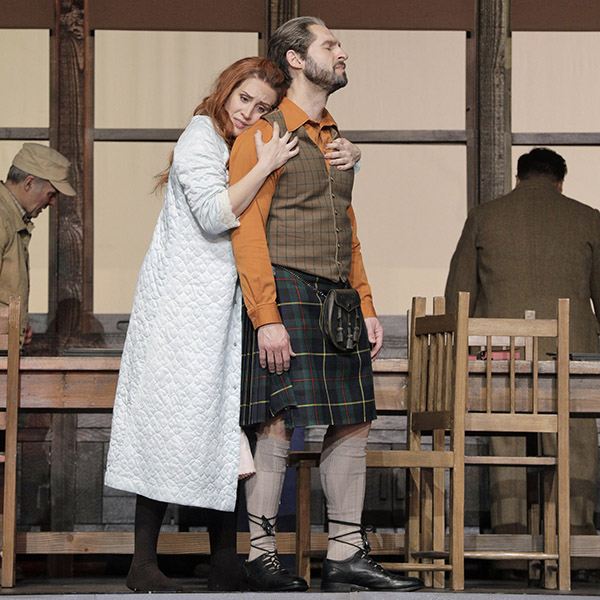
"Se rinasce nel mio cor...Si godete al vostro amor"
"Dopo notte atra e funesta"
Ariodante
by George Frideric Handel
Lyric Opera Commentaries are sponsored by the Patrick G. and Shirley Welsh Ryan Foundation in memory of their parents.
© 2018/19 Lyric Opera Commentaries. All rights reserved. Recording & Production services provided by Mark Travis. The music featured in Lyric Commentaries is generously furnished by Warner Classics.
A project of the Women’s Board

Commentary by Derek Matson
Ariodante articles
Lust, Lies, and Drama Will Roil the Lyric Stage in Ariodante
How have audiences and critics reacted to this coproduction of Ariodante? Read for yourself!
Ariodante Marries Brilliant Baroque Music with Bold Updated Staging
Sometimes opera takes you to completely unexpected, dramatically powerful, thought-provoking places — if you're open to new experiences.
Synopsis
Program book
Go inside this production of Ariodante with engaging articles, notes from the director, a complete plot synopsis, artist bios, and more.
Director's note on Ariodante
Ariodante stands out as one of Handel's more melancholy works. It's full of psychologically rich and interesting characters, with innocent lovers Ariodante and Ginevra at the center of it all. Inspired by the original Edinburgh setting of the opera, we set this production on a remote Scottish island in the late 1960s or early '70s. It's a close-knit, male-dominated community with a strong moral center rooted in Calvinism. Their industry is based on fishing and wool, which is reflected in the costume designs that have islanders dress in Aran-style sweaters and kilts. It's a physical, working community, so while the production is set in the twentieth century, there is a sense of timelessness in the costumes and the dress is similar for men and women. Only Ginevra stands apart, with her more feminine clothes.
The islanders are essentially good people. Though they may have weaknesses, they have a strong moral compass. There is only one character who is really, actively bad among them: Polinesso. In our production, he takes the form of an outsider: a charlatan preacher from a city on the mainland. He's charismatic and interested in young women who haven "ecstatic" qualities, such as Ginevra. But he has a very cruel, misogynistic streak, reminiscent of certain passages in the Old Testament. The king of the island is in a psychological slump after the death of his wife and takes comfort in Polinesso's teachings, blind to the evil infiltrating his community.
While the opera is titled Ariodante, Ginevra is the other character at its heart. She's a young woman singled out and punished by a male-dominated community for her sense of imagination and fantasy. In our production, she makes a very important decision, in the light of everything that happens to her, that radically reinterprets the opera's traditional ending and paradigm of redemption. Her betrothed from a neighboring island, Ariodante, is sensitive, sincere and noble-hearted, both in happiness and defeat. Lurcanio (Ariodante's brother), driven by his anger and sense of justice, encourages the king to act violently. Dalinda (the other main female character in the opera) is tortured by her own blinkered desire and Polinesso's machinations. In the midst of this, Ginevra is always moving forward, while the others are immobilized by their anger, their masochism, or their depression.
While we've taken inspiration from the nineteenth-century theater of Ibsen and Strindberg for the overall style of the production, we've added a choreographed dimension to our sense of realism that responds to the formality of eighteenth-century musical forms, punctuating our psychological exploration of Ariodante. A significant feature of the production is that we stage the "Dances" composed at the end of each act as puppet sequences performed by the island community as expressions of their hopes and fears, in response to unfolding events.
— Benjamin Davis, Revival Director
Reprinted courtesy of the Canadian Opera Company
Meet the artists
* Lyric Opera debut
** Ryan Opera Center alumnus
*** Current Member, Ryan Opera Center
New Lyric coproduction of Handel’s Ariodante generously made possible by


Margot and Josef Lakonishok
Production of the Festival d'Aix-en-Provence, in coproduction with Dutch National Opera, Amsterdam; Canadian Opera Company, Toronto; and Lyric Opera of Chicago.
Photo: Cory Weaver

